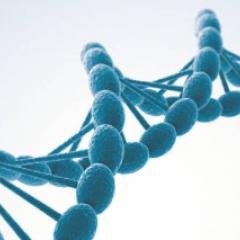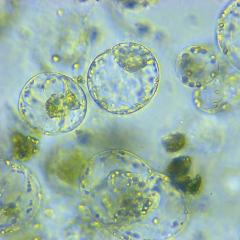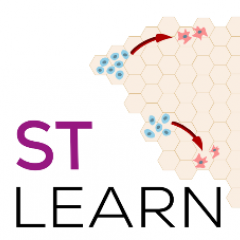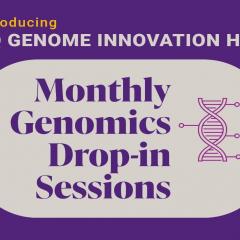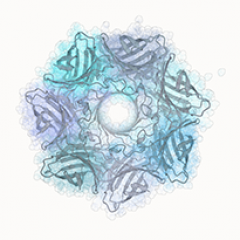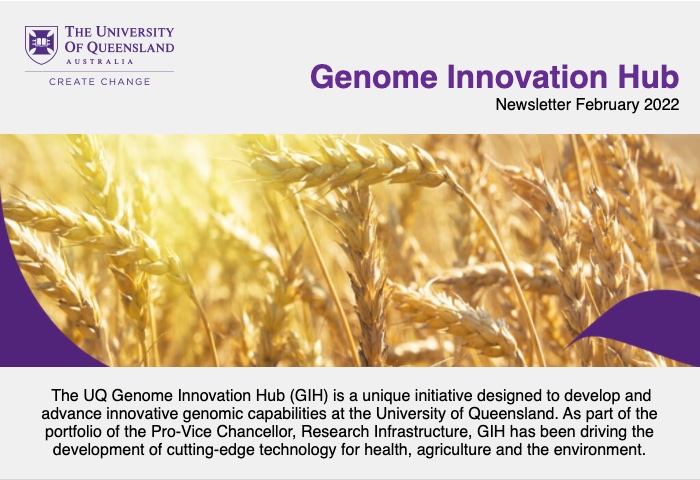
First edition 2022 - Director's note
 Dear Colleagues,
Dear Colleagues,
Welcome to the first edition of the GIH newsletter for 2022. In this issue we are excited to announce the recipients of 2022 External Projects! We also highlight one of our collaborative projects, a novel method for plant epigenetic profiling, as well as our latest publications and new developments.
Of note is that March is worldwide Endometriosis month. In support we shine a spotlight on one of our GIH project leaders, Dr Brett McKinnon, a UQ research fellow working in this area. In this edition we also feature "a day in the life" in one of our latest collaborative UQ facilities, BASE, who bio-manufactures RNA/DNA for vaccine development.
We hope you enjoy the read. The next edition of the GIH newsletter will be distributed in May 2022.
Professor Grant Montgomery, Director
GIH receives the 2021 Award For Team Excellence!
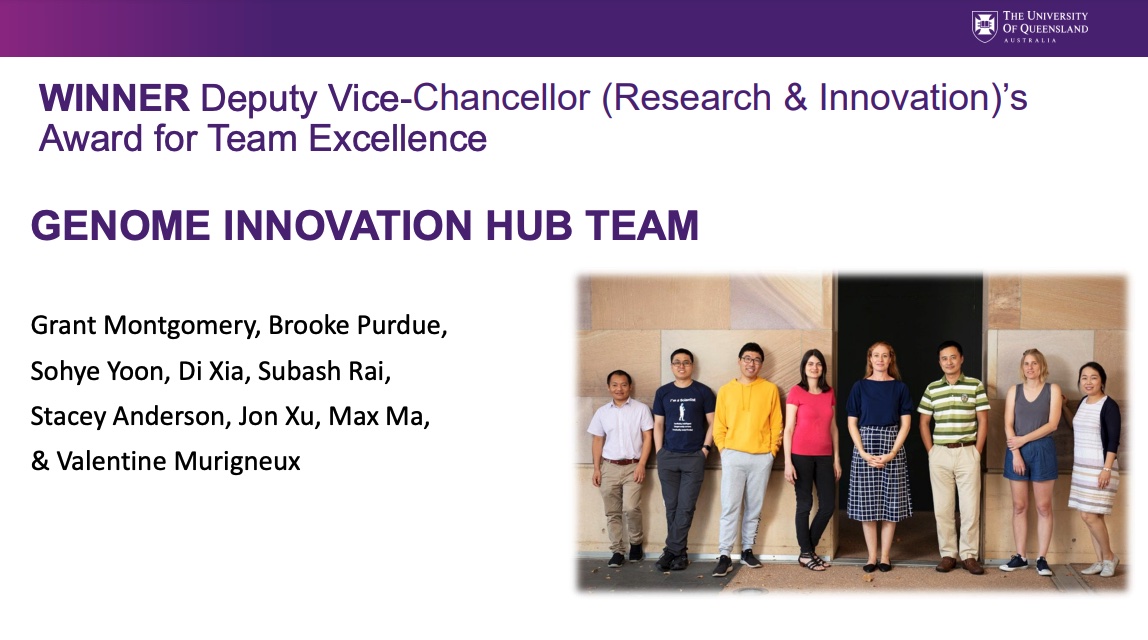
At the end of last year, the Genome Innovation Hub team were honoured to be the recipients of the 2021 Award For Team Excellence. This award recognises the significant and outstanding performance of a team within the UQ Research and Innovation Portfolio.
The Award is given to a team the epitomises UQ’s values:
- Pursuit of excellence
- Creativity and independent thinking
- Honesty and accountability
- Mutual respect and diversity
- Supporting our people
The GIH Team would like to thank our over 100 amazing collaborative researchers and their research groups as well as everyone who has assisted our team in often challenging circumstances over the last year.
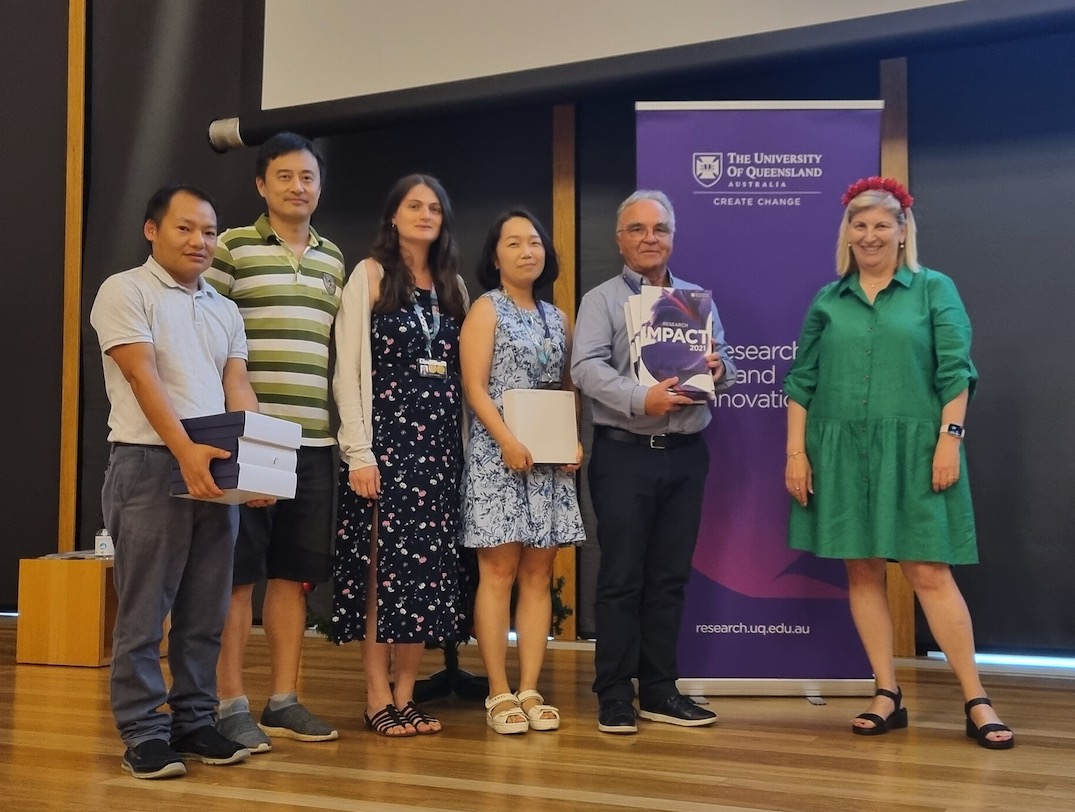
We'd also like to acknowledge our many fantastic collaborative schools, institutes and research centres who all support the researchers and projects we undertake. Our success is thanks to you all!
Congratulations to all the nominated teams and individuals for their great efforts across UQ. To read more about all the awards and nominations, including GIH's Operations Manager, Brooke Purdue, nominated for the Key Contributor Award: Leadership, click the button below.
2021 Research and Innovation Portfolio Awards
New GIH collaborative projects
As with our previous years' calls for collaborative project proposals, we again received many excellent applications for GIH projects from researchers across UQ. We'd like to thank all the applicants and acknowledge the effort and time it takes in preparing project proposals.
After the difficult task of selecting from these applications the relatively few projects to proceed with, we are now excited to officially announce our new collaborative projects and lead researchers for 2022! We look forward to starting these projects soon and all the genomic and genetic developments that will arise from these diverse research areas.
2022 GIH EXTERNAL COLLABORATIVE PROJECTS
Using nanopore sequence to test mRNA vaccine quality.
Dr Helen Gunter, A/Prof Timothy Mercer, Senel Idrisoglu, Dr Romain Tropee
and Prof Trent Munro.
Australian Institute for Bioengineering and Nanotechnology (AIBN)
and BASE (RNA/DNA Biomanufacture) facility.
Enrichment and analysis of functional small interfering RNAs
for optimised topical RNAi applications.
Dr Donald Gardiner, Dr Chris Brosnan and Mr Stephen Fletcher.
ARC Hub for Sustainable Crop Protection, Centre for Horticultural Science, Queensland Alliance for Agriculture and Food Innovation (QAAFI).
Decoding temporal control of cell differentiation by
Divisional Indexing Single-Cell-Sequencing (DISC-Seq).
Dr Mehrdad Pazhouhandeh and Prof Di Yu.
The University of Queensland Diamantina Institute, Faculty of Medicine.
Cleared for recombination – identification and exploitation
of genome landing pads for cattle.
Prof Tim Mahony, Dr Sarah Withey, Ms Tatiana Briody, Dr Elizabeth Ross,
Prof Ben Hayes, Dr Karishma Mody.
Centre for Animal Science (QAAFI), Centre for Horticultural Science, QAAFI, Australian Institute for Bioengineering and Nanotechnology (AIBN).
Development of a field-friendly adaptive sequencing pipeline to
increase sensitivity of metagenomic sequencing of low biomass samples.
Dr. Seweryn Bialasiewicz and Dr. Julian Zaugg.
School of Chemistry and Molecular Biosciences (SCMB), Faculty of Science,
and the Australian Centre for Ecogenomics (ACE).
Multi-contact Pore-C: Telomere-to-telomere genome assembly
using ultra-long reads and Pore-C scaffolding.
Dr Hyungtaek Jung, Dr Loan Nguyen, Dr Elizabeth Ross, Prof Ben Hayes, A/Prof Craig Hardner, Dr Bradley Campbell and the Oxford Nanopore Technologies Team.
Centre for Animal Science, QAAFI, Centre for Horticultural Science, QAAFI, Centre for Crop Science, QAAFI and Oxford Nanopore Technologies.
Development: HMW Total DNA Extraction from difficult plant species
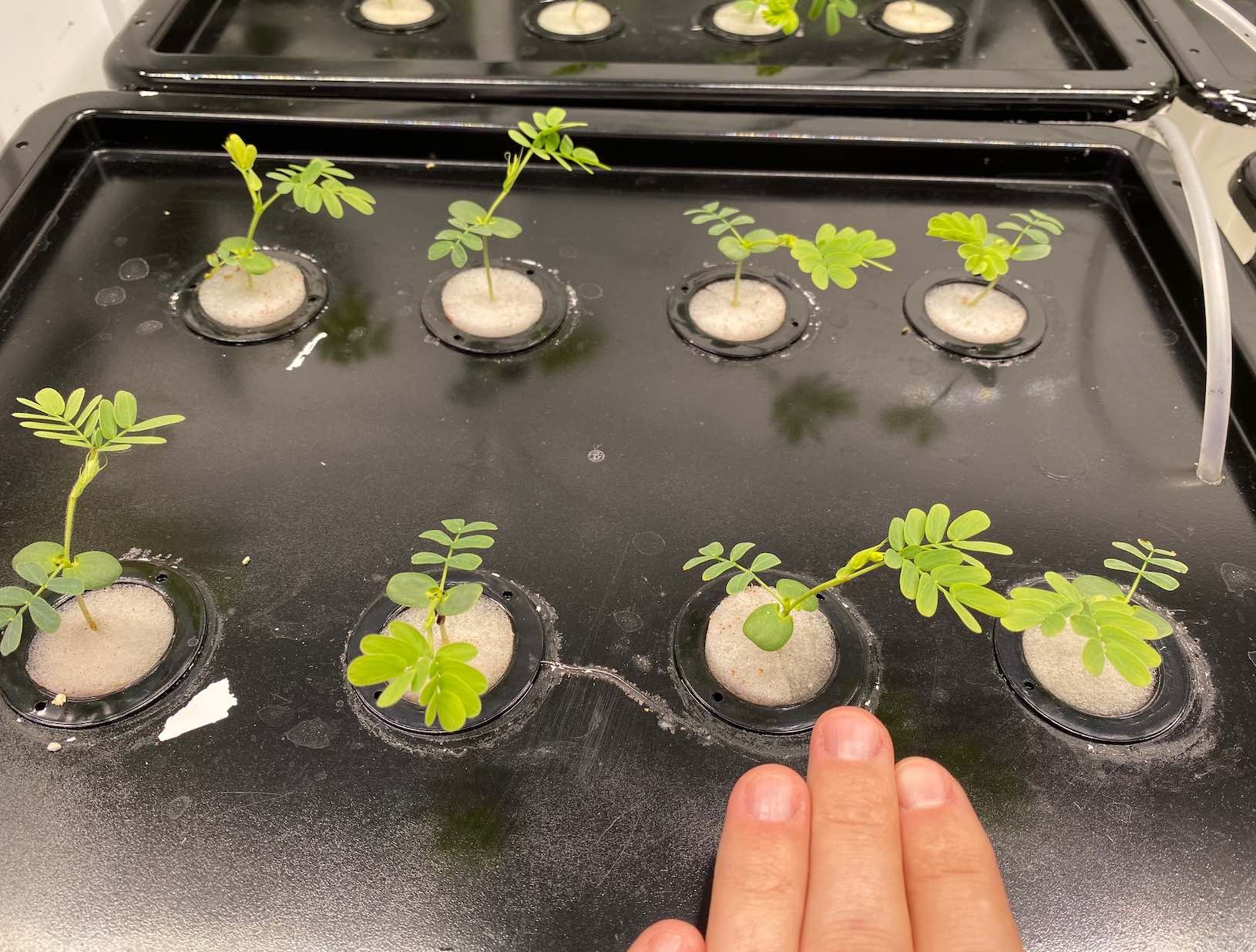 Long read sequencing technologies require highly pure high molecular weight (HMW) intact DNA to utilise the optimal capacity of these technologies. Getting pure HMW total DNA in non-model plant can be challenging due to complex cellular metabolites that chemically behave like DNA molecules.
Long read sequencing technologies require highly pure high molecular weight (HMW) intact DNA to utilise the optimal capacity of these technologies. Getting pure HMW total DNA in non-model plant can be challenging due to complex cellular metabolites that chemically behave like DNA molecules.
Previously, we have optimised a protocol for HMW nuclear DNA extraction which excluded the organelles DNA (mitochondrial and chloroplast).
As part of our GIH collaborative project A genomic dissection of metaorganisms: molecular approaches for teasing apart the hologenome, we have also developed a protocol to extract HMW total DNA from plant species that is compatible for long read sequencing technologies such as ONT and PacBio. This protocol yielded a high quality High Molecular Weight (HMW: 50kb – 300kb, DIN: > 8.5) DNA from a wide range of plant species. The DNA quality was assessed in Qubit, NanoDrop, TapeStation, PFGE, and ONT sequencing.
The full protocol will be published soon, so keep up to date via our long read sequencing developments page on our GIH website.
GIH developments and protocols
To find out about all our GIH developments from within our collaborative projects, click the links below.
- Single-cell and short read sequencing
- Imaging and spatial transcriptomics
- Proteomics
- Long read sequencing
- Bioinformatics and computational tools
Enabling population scale epigenomics for crop improvement
To address the inhibitory price of conventional whole genome bisulfite sequencing (WGBS), the GIH team have been working with the UQ research groups of Dr Peter Crisp, A/Prof Lee Hickey and Dr Kai Voss-Fels towards inventing a new, very cost-effective method called UMR-seq, to profile DNA methylation in crops with large genomes.
 For most crops, the majority of their genome is highly methylated with only a small fraction lacking methylation; for example, only 3-5% of the barley genome is unmethylated. While methylation can be categorised into different types depending on the sequence context or genomic location, when considering the effect on gene expression, the most important types of methylation are highly methylated and unmethylated, which repress and promote expression respectively.
For most crops, the majority of their genome is highly methylated with only a small fraction lacking methylation; for example, only 3-5% of the barley genome is unmethylated. While methylation can be categorised into different types depending on the sequence context or genomic location, when considering the effect on gene expression, the most important types of methylation are highly methylated and unmethylated, which repress and promote expression respectively.
Building on their recent work studying unmethylated regions (Crisp et al. 2020), Peter and his collaborators hypothesised that a more efficient way to profile DNA methylation genome wide could be to focus on the functional important unmethylated fraction.
This 2021 GIH collaborative project between GIH, UQs School of Agriculture and Food Sciences (SAFS) and the Queensland Alliance for Agriculture and Food Innovation (QAAFI), will be of interest to those in the plant epigenetic community as an alternative method for DNA methylation profiling, especially those working on plants with large genomes. There will be immediate applications for population level investigations and ecological studies. We also speculate that this same method could have exciting applications in animal genomes especially with regard to variation in DNA methylation during development, so this method may be broadly of interest to the research community.
We are nearing completion of this project so if you're interested in finding out more, have a look at the GIH projects webpage or get in touch with Dr Peter Crisp directly.
GIH collaborator spotlight - Dr Brett McKinnon
Each newsletter we shine the spotlight on a lead researcher within one of our GIH collaborative projects.
We caught up with Dr Brett McKinnon, Research Fellow at the Institute for Molecular Bioscience. He is a medical research scientist who specializes in Reproductive disorders including Endometriosis and gynaecological cancers.  Brett works as part of the team investigating genetic susceptibility on endometriosis stem cells through funding from the US Department of Defence, as well as establishing new treatment pathways for endometriosis through MRFF frontiers funding. He was one of the recent recipients of 2021 Endometriosis Australia research funding for understanding environmental influences in endometriosis susceptibility, to generate insights into actionable targets to fight a disease that effects more than 10% for reproductive age women. He also received funding from the Bern Center for Precision Medicine to develop single nuclei sequencing methods from archival tissue over to assess the relationship between gene expression changes and how endometriosis patients respond to treatments.
Brett works as part of the team investigating genetic susceptibility on endometriosis stem cells through funding from the US Department of Defence, as well as establishing new treatment pathways for endometriosis through MRFF frontiers funding. He was one of the recent recipients of 2021 Endometriosis Australia research funding for understanding environmental influences in endometriosis susceptibility, to generate insights into actionable targets to fight a disease that effects more than 10% for reproductive age women. He also received funding from the Bern Center for Precision Medicine to develop single nuclei sequencing methods from archival tissue over to assess the relationship between gene expression changes and how endometriosis patients respond to treatments.
With GIH, Brett is leading the collaborative project "HTS single cell CRISPR technology for experimental validation of population genetics and functional genomics discovery". The aim of this project is to develop important cutting-edge genomics capabilities that allow for the simultaneous screening of hundreds of genomics regions, including non-coding regions, in a single experiment. This approach will allow researchers to validate the transcriptional regulation mechanisms of candidate gene regions, such as complex trait disease like endometriosis.
Can you tell us a bit more about your key research interests?
My current research focuses on understanding the pathogenesis of endometriosis, a prevalent gynaecological disease with debilitating consequences. It is characterised by the growth of endometrial epithelial and stromal cells outside the uterus, but with contributions from multiple cell types within a unique microenvironment towards lesion initiation and growth. We are looking to tease apart this complex disease by focussing on the contribution of the individual cells. As a complex genetic disease we investigate the consequences of common genetic variants associated with endometriosis on these individual cells, how variants influences their behaviour and interaction with other cells within the microenvironment. This is being studied by recapitulating endometriotic environments with multi cellular in vitro models generated from patient tissue.
Can you tell us a bit about your project with GIH and how this relates to your research?
Genetics and genomics research projects often result in new hypotheses on possible mechanisms for genetic control of complex cellular processes. For most quantitative traits (complex traits), the number of candidate genes are often more than 50 and will continue to increase. Eventually, the targeted candidate genes require experimental validations to confirm their biological mechanisms. Endometriosis is a heritable complex genetic disease with the latest genome wide association study (GWAS) identifying over 50 risk regions. Most risk alleles for common diseases identified by GWAS, endometriosis included however, lie in non-protein coding regions suggesting a functional mechanism in gene regulation. There is a critical need to develop experimental approaches to understand the function of low penetrance, common risk alleles. Genome editing is a highly efficient method for evaluating the functional impact of genetic perturbation and understanding how this influences the individual cell types will allow us to put together a much better picture of the development of endometriosis lesions.
What is the goal of this project and how could it benefit other researchers?
In this project, we will optimise a single cell perturb sequencing method to work with patient derived cell lines and organoid cultures, to address clinically important question in endometriosis research. This will create an innovative and important platform technology for high throughput validation of candidate genes in disease specific cells. It will create a streamlined experimental workflow that assists in the functional follow up of genetic associations with disease that can be transferable to a broad range of research questions particularly for complex genetic diseases.
Find out more about the HTS single-cell CRISPR project here
Day in the life: BASE RNA|DNA Biomanufacture Facility
BASE is a research service facility that specialises in the bioproduction of high-quality nucleic acids for researchers in academia, industry or government institute. It comprises a team of skilled nucleic acid scientists with industry experience and is jointly supported by Therapeutic Innovation Australia (a National Collaborative Research Infrastructure Strategy program) and the University of Queensland. BASE is located at UQ Australian Institute of Bioengineering and Nanotechnology (AIBN) and provides research services within or outside of UQ, across Australia and overseas.
As a 2022 GIH project, BASE and the Mercer’s group are collaborating with the GIH team in the development of direct RNA sequencing capabilities that will enable the characterisation of mRNA product. We caught up with members of the BASE team to find out more about this new facility at UQ:
 About BASE: Dr Romain Tropée
About BASE: Dr Romain Tropée
BASE supports the development of innovative technologies with diverse outcomes leading to cutting-edge science, diagnostic and therapeutic tools, or agricultural products. BASE provides end-to-end services, from initial project and sequence designs, scalable manufacturing for research-grade production or process development, and analytical technology to analyse and characterise nucleic acid-based products for key quality attributes.
 A typical day at BASE: Emily Ariens
A typical day at BASE: Emily Ariens
Our facility is establishing production platforms focusing on three molecules: plasmid DNA, mRNA and dsRNA.On day-to-day, the team would be completing one of our platform process services, such as mRNA IVT, amplifying or purifying plasmid DNA and double-stranded RNA, as well as analytics. Outside of the lab, we compile results into production reports, keep up to date with the literature, work on experimental plans, meet with users and engage via Twitter.
 What do you like best about your job?: Dae Jong
What do you like best about your job?: Dae Jong
Working with some of the most advanced equipment available in the field, such as the Sartorius PATfix analytical HPLC platform, will be the first to be commissioned in the Asia-Pacific region! Being part of a team in a unique position between industry and academia, delivering the best and latest on nucleic acids production standards to help researchers obtain high-quality results faster and more efficiently.
 Advice to others: Dr Johnathon Peters
Advice to others: Dr Johnathon Peters
We encourage researchers or potential users to contact us, whether you need extensive production services, characterisation or just have a question on best lab practices or protocol. For example, when considering mRNA production for transfection studies, additional structural features that enhance translation of mRNAs are critical such as untranslated regions and poly A tail. If you are interested in production of quality nucleic acid for your next project, BASE offers a versatile platform for design and production of mRNA, plasmid DNA or dsRNA with added structural features if desired.
Latest publications
GIH is proud to support the research within the 2019 GIH project "Assembly of complex genome (Macadamia) using single molecule sequencing", led by our GIH collaborator Prof Robert Henry, Queensland Alliance for Agriculture and Food Innovation (QAAFI).
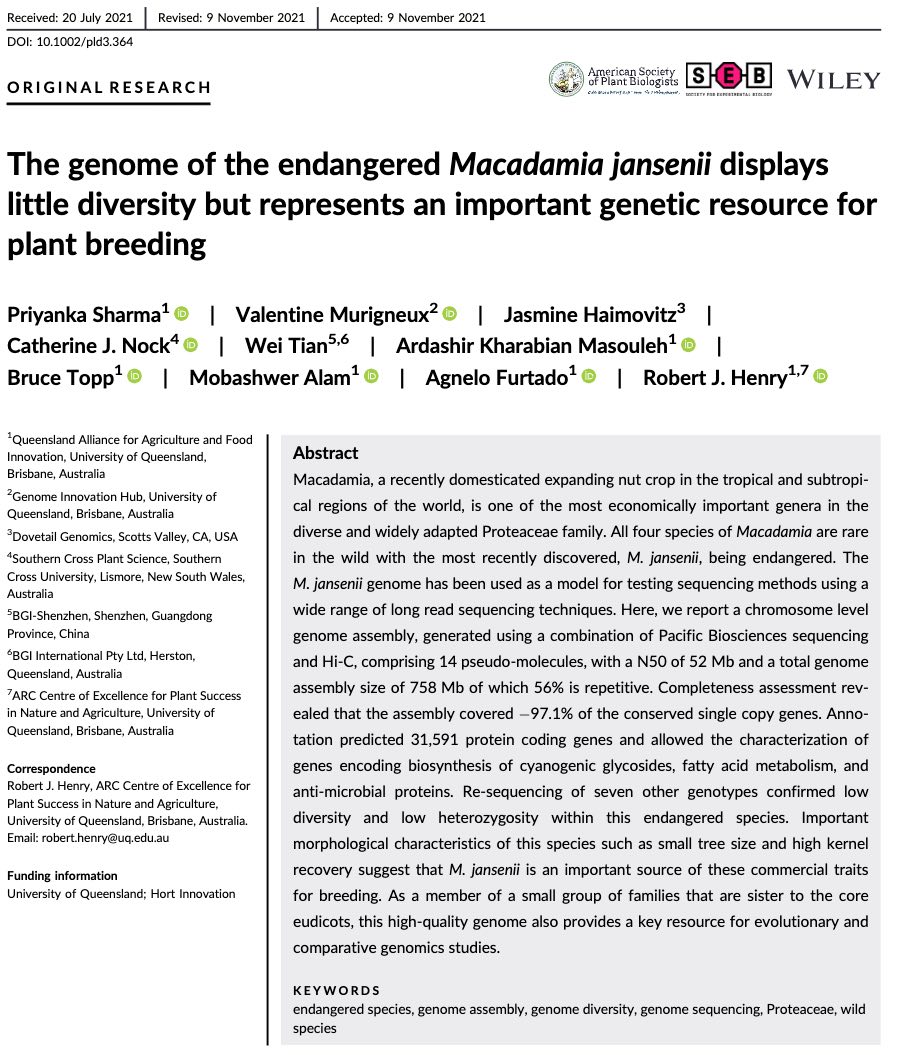 Published in Plant Direct, by Priyanka Sharma and colleagues as "The genome of the endangered Macadamia jansenii displays little diversity but represents an important genetic resource for plant breeding" the authors report chromosome level assembly using Hi-C and annotation of the wild Macadamia's genome. This provides a platform that allows analysis of key genes of importance in macadamia breeding, a reference genome in this group of angiosperms, and insights into the impact of rarity on plant genomes.
Published in Plant Direct, by Priyanka Sharma and colleagues as "The genome of the endangered Macadamia jansenii displays little diversity but represents an important genetic resource for plant breeding" the authors report chromosome level assembly using Hi-C and annotation of the wild Macadamia's genome. This provides a platform that allows analysis of key genes of importance in macadamia breeding, a reference genome in this group of angiosperms, and insights into the impact of rarity on plant genomes.
Dual GIH and QCIF team member Valentine Murigneux contributed to this publication through her involvement in the bioinformatics analysis and editing of the manuscript.
Head over to our GIH website to see all of the publications and developments arising from this highly successful GIH Collaborative project.
Assembly of complex genome (Macadamia) using single molecule sequencing
Latest Bioinformatic Software: Australian Apollo Service
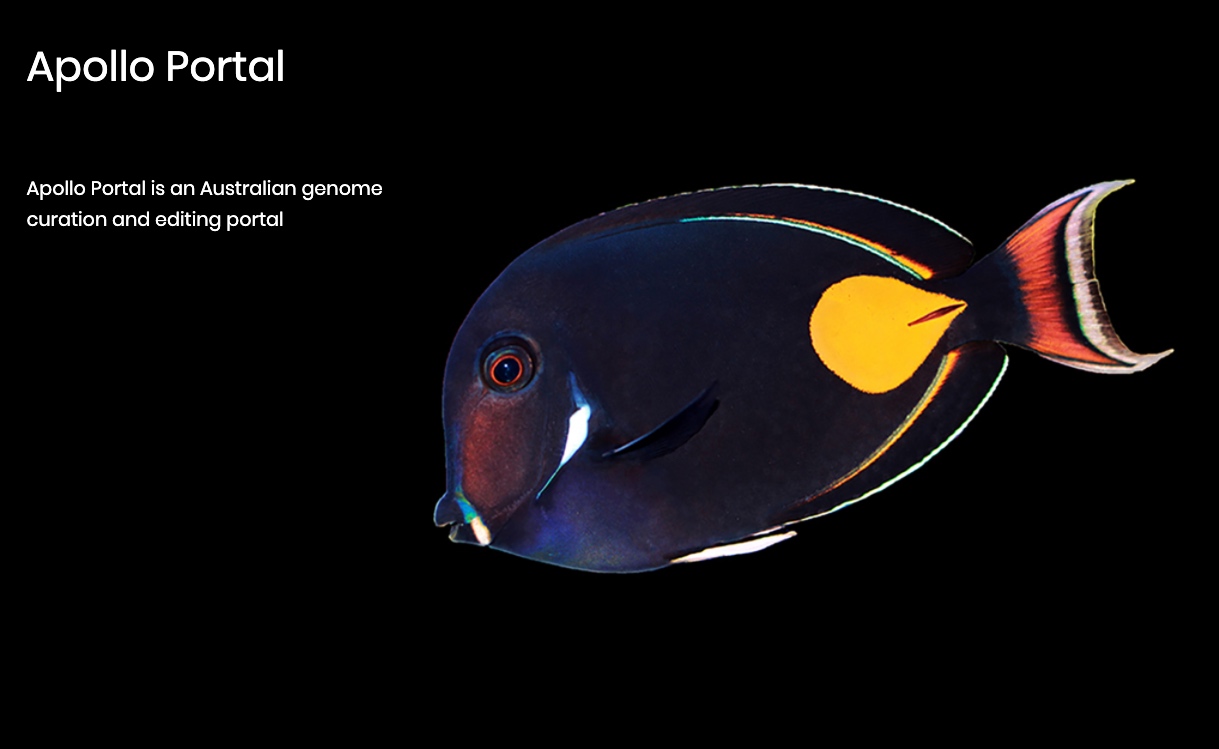
The Apollo Service is a workbench for visualising, manipulating, analysing and interpreting life science data (specifically genome assemblies and genome annotations, and enabling the manual curation of genome annotations). The Australian BioCommons (hosted by The University of Melbourne) operates the Australian Apollo Service and Apollo Portal in collaboration with Queensland Cyber Infrastructure Foundation (QCIF) with investment from Bioplatforms Australia (BPA), the Australian Research Data Commons (ARDC) and the Queensland Government's Research Infrastructure Co-investment Fund (RICF). The Service is underpinned by computational resources provided by the Pawsey Supercomputing Research Centre.
Apollo is free to use for Australian-based research groups and research consortia and was utilised in our 2021 GIH collaborative project "Developing a scalable genome browser and repository for complex multi-omic datasets." by the UQ research groups of Prof Sandie Degnan and Prof Bernie Degnan for marine organisms. A webinar featuring their GIH project can be viewed here.
Check out the Australian BioCommons webpage for more information about the Apollo Service, or head directly to the Apollo portal here to see the available organism genome browsers and how to sign up yourself.
Seminars, Workshops and Conferences
2022 Genetics & Genomics Winter School, 20-24 June
This 5-day workshop run by UQ's HSU program in complex trait genomics, aims to introduce state-of-the-art statistical and computational methods in genetics and genomics, in the format of face-to-face lectures with computer lab practicals. Five modules will be offered, including basics in linear models/R programming/GWAS, system genetics and genetic epidemiology, population genetics and cellular transcriptomics, with hot topics for each. Get in quick as due to room capacity, each class size is limited to 30 participants only.
https://hsu.imb.uq.edu.au/genetics-and-genomics-winter-school
2022 Protein Analytics and Characterisation Workshop, 14 March.
The workshop will expand your knowledge on specialised characterisation workflows available at UQ to produce data that matches industry and publication standards. PEF research specialists will present topics on UQ's modern protein analytics and characterisation capabilities. Following the workshop, PEF is hosting an interactive tutorial session exclusively for UQ staff and students, providing strategies and techniques to handle challenges encountered with result analysis and interpretation.
https://pef.facility.uq.edu.au/event/1094/protein-analytics-and-characterisation-workshop
UQ Hacky Hour, every Tuesday, 3–4pm.
UQs RCC and QCIF Bioinformatics teams are on hand to answer your computational questions every Tuesday afternoon via zoom. In addition, the GIH team are on hand to answer any genomic related questions on the first Tuesday of the month (Bioinformatics) and last Tuesday of the month (Experimental and sample prep). For Zoom meeting details please email hacky hour directly.
hackyhourUQ@gmail.com
QCIF training courses and workshops
QCIF (the Queensland Cyber Infrastructure Foundation) runs a number of training workshops throughout the year available to staff and students from six Queensland Universities including the University of Queensland. These include categories such as Bioinformatics Analysis, Data Processing and Statistics, Data sharing and reproducibility, Machine Learning, Programming / Software Carpentry, Surveys and Data Management, Visualisation and research communication. See the website for further information.
https://www.qcif.edu.au/training/course-catalogue/
UQ Research Computing Centre Training and workshops
The UQ Research Computing Centre (RCC) runs a number of regular training sessions, specialty training sessions and on-demand training sessions with a focus on the computing resources available at UQ. See their training webpage for upcoming sessions and contact details UQ.
https://rcc.uq.edu.au/training#upcoming
UPCOMING SYMPOSIA AND CONFERENCES
UQ Early Career Researcher (ECR) Symposium Life Sciences, 17-18 May
The UQ Early Career Researcher Symposium (Life Sciences) is an opportunity to share your research with talks and poster sessions with your life sciences colleagues from across UQ. This two-day symposium will be held at the Brisbane Convention Centre on 17 and 18 May 2022. Topics include: Genetics and Genomics, Emerging Life Sciences Technology, Disease and Underlying Biology, Healthy Living and Career Development.
Registration and abstract submission closes on 25 March 2022.
https://imb.uq.edu.au/event/15963/uq-early-career-researcher-symposium-life-sciences
World Science Festival Brisbane, 9-13 March
Each year the World Science Festival Brisbane (WSFB) paints the town red and takes science out of the laboratory and into the streets, parks, museums, galleries and performing arts venues of Brisbane and regional Queensland! WSFB has a huge lineup of events, including feature talks from several of UQs academics and scientists.
https://www.worldsciencefestival.com.au/
London Calling 2022: Oxford Nanopore - Hybrid event, 18-20 May.
Expect to hear the very latest research from scientists using nanopore sequencing in their work. will feature plenary, breakout, lightning and spotlight talks as well as poster presentations. Tickets will be available to attend in person, or join a part of the virtual conference delegation. London Calling 2022 welcomes abstracts submissions from scientists at any stage of their career. Submissions close on 25th February 2022.
https://nanoporetech.com/lc22
Got news?
We'd love to know if you have found any of our GIH developments helpful for your own research, so drop us a line.
In addition to our quarterly newsletter, GIH news is also posted on our website here and on our Twitter feed here.
Copyright © 2012 The University of Queensland
ABN 63 942 912 684 | Privacy policy
Authorised by: Director, Genome Innovation Hub
Maintained by: b.purdue@uq.edu.au


